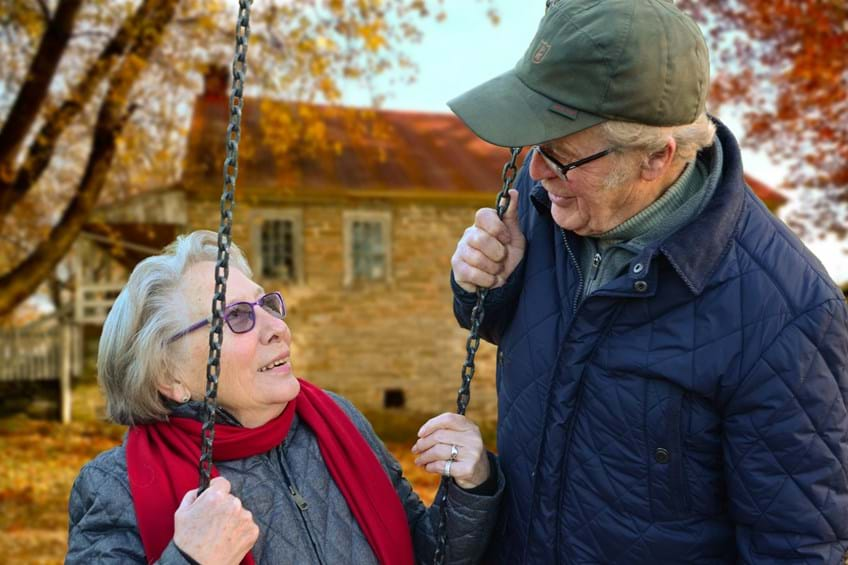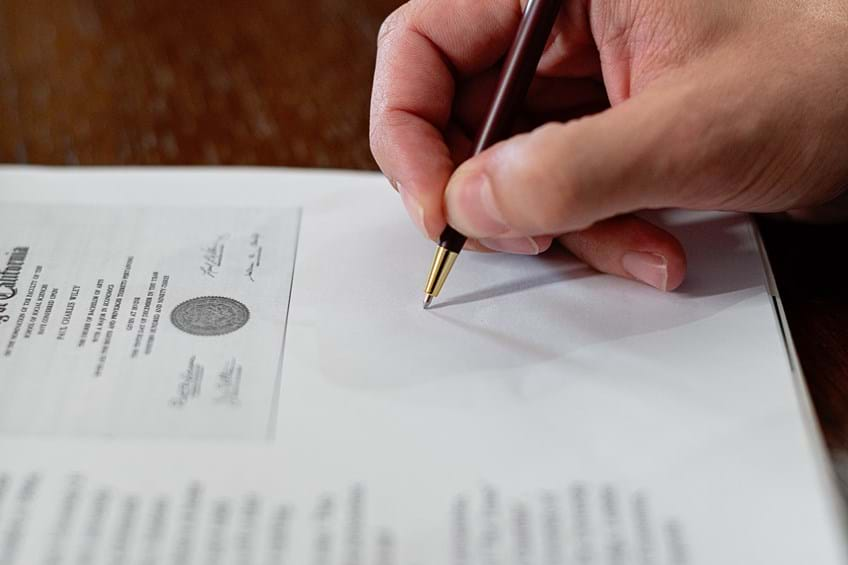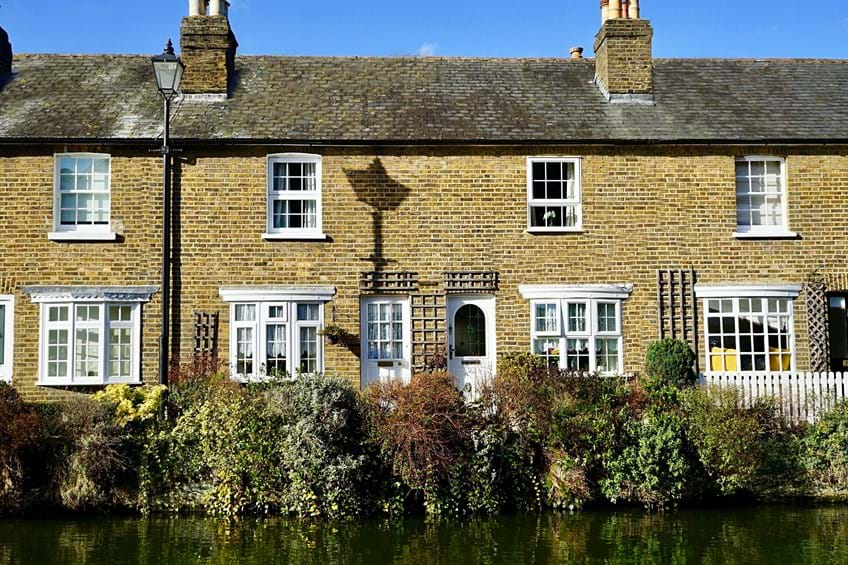Wills Probate and Trusts

Risks of Making Own Lasting Powers of Attorney
In today’s environment we are all looking at areas of our lives where we can save money, whether that is our weekly shop at the supermarket or shopping around for cheaper utility providers. In some cases, people are also looking at the possibility of carrying out some of their own legal work where traditionally they would have appointed a lawyer to act on their behalf.
It is worth remembering that lawyers have undertaken many years of extensive training and, in some cases, built up many years of experience to provide full advice, taking into account the risks and benefits involved.
Although it is possible to make your own Lasting Powers of Attorney, the risks of doing so without having an experienced lawyer instructed to create the Lasting Power of Attorney on your behalf can be very serious.
One of the risks is if the Lasting Powers of Attorney are rejected by the Office of the Public Guardian at the point they are registered. There are thousands of Lasting Powers of Attorney rejected at this stage each year and if this is the case the Office of the Public Guardian will retain the registration fee submitted and require a further registration fee when the corrected application is made. Whilst having to incur a second registration is frustrating, the matter could be made worse if the person whose Lasting Power of Attorney is sought to be registered no longer has capacity. If capacity has been lost then a Lasting Power of Attorney cannot be made and the alternative to this (known as a Deputyship Order) is a very expensive, often running into the thousands of pounds, and time consuming process.
Another common situation is where a Lasting Power of Attorney has been created without legal assistance and is successfully registered at the Office of the Public Guardian. Some time later when the Lasting Power of Attorney is needed to be used there may be errors within the document or some incomplete sections which means banks and other organisations will not accept the document. Again, if the person in question no longer has capacity then they cannot make a new Lasting Power of Attorney. As stated previously, the only option available in this situation is the expensive and time consuming Deputyship Order. The Deputyship Order takes a number of months to be obtained which can cause difficulties for the family ensuring that bills continue to be paid which could cause cash flow problems for themselves.
Whilst certain areas of Lasting Powers of Attorney are relatively simple to complete, there are other areas of the form that are less simple. Indeed, there are some areas where it is advised that legal advice should be taken.
Another role of a solicitor when acting for a client making Lasting Powers of Attorney is to be alert for any potential undue influence or even fraud. A lawyer will attend upon the client and discuss the Lasting Powers of Attorney in detail to ensure they have understood the principles of Lasting Powers of Attorney, any implications and that it is something they are wanting to do themselves rather than a forceful third party exerting undue influence on them to do something they are not comfortable with. Sadly, there are cases where Lasting Powers of Attorney have been fraudulently made (such as being prepared and signed by someone with the person in question having no knowledge that it had ever been made so that the “attorneys” can then access bank accounts). With a lawyer instructed then we can safeguard against this since all of our clients are identified to ensure they are the person they are claiming to be.
As with most cost saving exercises, making your own Lasting Power of Attorney could result in being a false economy. The costs of rectifying errors, whether that be making a new Lasting Power of Attorney or the situation arising where a Deputyship Order is required, are unnecessary and expensive.
Our costs for dealing with Lasting Powers of Attorney (LPA) are as follows:-
One LPA will be £350 plus VAT
Two LPAs will be £500 plus VAT
Any additional LPAs will be charged at £100 plus VAT.
Therefore, if a husband and wife decide to create both Property and Financial Affairs LPAs and Health and Welfare LPA’s (a total of four documents) then our total charges will be £700 plus VAT.
The document must be registered with the Office of the Public Guardian for which there is an £82 court fee per document. It may be possible to apply for an exemption of this court fee if you are in receipt of certain benefits and this will be discussed during your initial meeting
To discuss Lasting Powers of Attorney, please contact one of our lawyers in the Wills, Lasting Powers of Attorney and Probate Department:-
Jamie Dobbs- jamie.dobbs@maplessolicitors.com
Jane Mawer- jane.mawer@maplessolicitors.com
Faye Blair- faye.blair@maplessolcitors.com
Or telephone the office 01775 722261 and ask to speak with one of the team.

Lasting Powers of Attorney Refund
The Office of the Public Guardian have announced that those who applied to register Lasting Powers of Attorney between 1st April 2013 and 31st March 2017 may be entitled to a refund of registration fees.
To check whether you are eligible for a refund and for details of how to claim visit:-

Dementia Friends
Maples Solicitors are proud to announce that they have now joined to become Dementia Friends which is an Alzheimer’s Society initiative.
The private client department of Maples Solicitors prepare Wills and Lasting Powers of Attorney on a regular basis and this often involves dealing with clients who are suffering from dementia. The private client team pride themselves on spending as much time as is necessary to assist all of their clients, but those suffering from dementia often require additional assistance and time to ensure that they have fully understood the legal documentation that they are creating. The private client department are regularly complimented on the way they deal with such clients, whether this be explaining things to them in a clear and uncomplicated manner, spending time with them or putting them at ease.
It is a misconception that anyone suffering from dementia cannot make a Will or Lasting Power of Attorney. Only if someone lacks sufficient mental capacity are they unable to make such a document. It is therefore vitally important upon any diagnosis of dementia that legal advice is taken as soon as possible to make sure that your affairs are in order so that it is easier for your family to deal with your affairs if you are unable to do so yourself.
To become Dementia Friends, Maples Solicitors have pledged to develop their understanding of dementia and continue assisting clients suffering from dementia with their legal affairs in a respectful, friendly and efficient way that is not daunting making the process as easy as possible.

Delays at the Office of the Public Guardian
A Lasting Power of Attorney must be registered at the Office of the Public Guardian before it can be used by your attorneys. Applications to register Lasting Powers of Attorney are now taking approximately twenty weeks to be finalised and the Office of the Public Guardian are recommending that you do not chase an application until six weeks after their suggested time frame. In many cases, this time frame can put significant pressure on family members or friends who need to start acting as an attorney.
In some cases, people are attempting to prepare and register their Lasting Powers of Attorney themselves and if the documents have not been prepared correctly and accurately this is resulting in further delays at the Office of the Public Guardian putting further strain on those needing to start acting as attorney. We would therefore recommend that Lasting Powers of Attorney are drawn up professionally to ensure that delays at the Office of the Public Guardian are kept to a minimum and are registered as quickly as possible. A Lasting Power of Attorney that has been drawn up professionally also has the benefit of minimising the risk of any potential undue influence or even fraud.
To discuss Lasting Powers of Attorney, please contact one of our lawyers in the Wills, Lasting Powers of Attorney and Probate Department:-
Jamie Dobbs- jamie.dobbs@maplessolicitors.com
Jane Mawer- jane.mawer@maplessolicitors.com
Faye Blair- faye.blair@maplessolcitors.com
Or telephone the office 01775 722261 and ask to speak with one of the team.

Coffee Morning and Pop-Up Clinic
Join us at Crowland Youth Building (behind Abbeyview Surgery), Thorney Road on Friday 14th July between 10am and 12pm for a free coffee morning and pop-up clinic to talk about Wills, Powers of Attorney and financial planning for Care Homes.
If you cannot join us for the coffee morning, please contact one of our lawyers in the Wills and Probate Department to discuss a home visit.
Or telephone the office 01775 722261 and ask to speak with one of the team.
We look forward to seeing you there.

Will Information Sheet
Will Information Sheet
The Will Information Sheet sets out the information that you will be asked at your first meeting with a lawyer to prepare your Will. It is not compulsory that this is completed but it may help you to make decisions on what you wish to include in your Will before the meeting.
- You
This simply asks for your personal information.
- Spouse/partner
This asks for your partner’s details. It is important that we have an understanding of your relationship status as you should make ‘reasonable provision’ for any long term partner or spouse. In the case of married individuals, if you are separated but not yet divorced, please make sure that we are aware of this fact as this will affect our advice to you.
- Contact details
These are requested for our use only and will not appear in your Will.
- Your Estate
This asks for you to give an approximate value of each of your assets as they stand at the current time and also those of your spouse/partner. It also asks for any liabilities such as a mortgage/loan/credit cards or any other debts that you may have.
This is requested in order that we can review the inheritance tax position of your estate. Each person has a ‘nil rate band’ of £325,000 meaning that you do not pay inheritance tax on the first £325,000 of your estate. Anything above this figure will pay tax at 40% (unless other relief’s or the additional Residence Nil Rate Band available). With effective tax planning married couples can utilise both of their individual nil rate bands and not pay inheritance tax on the first £650,000 of their estate or more if the Residence Nil Rate Band can be applied.
Knowing the value of your estate is also useful for potential residential care home planning. There is much controversy over the payment of residential care home fees and many do not realise that the time you make your Will is the most effective time to plan ahead and protect assets from being used to pay for those fees.
- Your Executors
These are the people that will have to administer your estate after you pass away. They collect in your assets, pay any debts that you may have including the funeral and distribute your assets as you set out in your Will. You can appoint up to four Executors.
- Guardians
If you have children under the age of 18 then you should appoint guardians to care for them in the instance that both you and your spouse/partner have passed away.
- Funeral Wishes
It is not compulsory that you set out your funeral wishes in your Will however if you have a preference over cremation or burial or any detailed requests we recommend listing them.
- Legacies- non charitable.
A legacy is a specific sum of money or item that you may wish to leave to a friend or family member. For example, ‘I give £500 and my pocket watch to my Godson Joe Bloggs absolutely’.
- Legacies- charitable
You may also wish to leave a donation to charity. Charitable donations are exempt from inheritance tax and so can be a useful tool in reducing the amount of tax to pay if you have a taxable estate.
- Residuary Estate
After your debts have been paid and the specific legacies under point 8 and 9 above have been paid, the remainder of your estate is known as your ‘Residuary Estate’. This is usually the bulk of your estate.
If you have a spouse/partner then the usual option taken is to leave the estate to the survivor of you. You can then make provision in your Wills that after both of you have passed away the estate passes down to your children or other family/friends depending on your circumstances.
This section of the form gives you space to consider who you would like to benefit from the residue of your estate and in what proportions.



